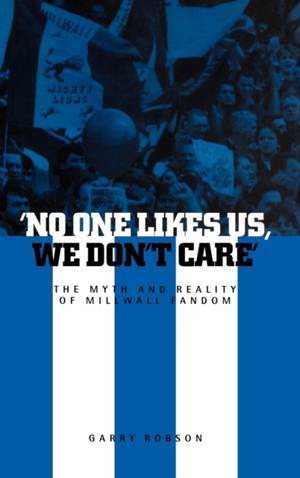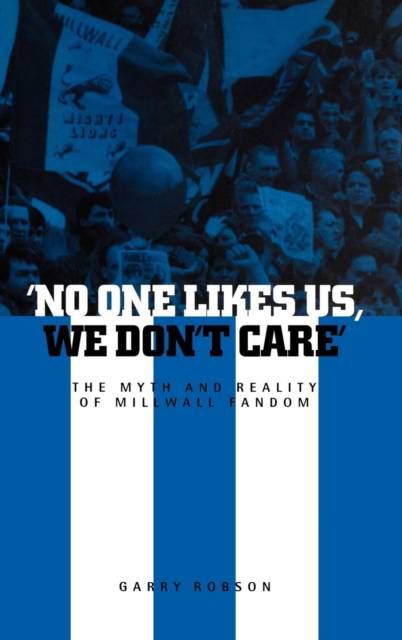
- Afhalen na 1 uur in een winkel met voorraad
- Gratis thuislevering in België vanaf € 30
- Ruim aanbod met 7 miljoen producten
- Afhalen na 1 uur in een winkel met voorraad
- Gratis thuislevering in België vanaf € 30
- Ruim aanbod met 7 miljoen producten
Zoeken
'No One Likes Us, We Don't Care'
The Myth and Reality of Millwall Fandom
Garry Robson
Hardcover | Engels
€ 228,95
+ 457 punten
Uitvoering
Omschrijving
Shortlisted for the Philip Abrams Memorial Book Prize 2001 'No one likes us, we dont care' is the anthem of the most notorious fans in British football. But little is known about the actual people who generated and continue to maintain this most infamous of working-class subcultures. In addition to the voices of the fans themselves, this book provides a rich and original account of the historical background, social sources, expressive culture and ritual practices of Millwallism, a far more complex, meaningful and anthropologically compelling phenomenon than the media stereotypes suggest. The author argues that Millwall functions in the popular consciousness as a powerful symbol: specific understandings of football hooliganism, working-class masculinity, and violent neo-fascism are triggered by its use in the media and in everyday social interaction. There are, it follows, few social groups as heavily mythologized as Millwall fans. Further, the generation and maintenance of this myth has significance far beyond the club itself, and is rooted in the meanings attached to working-class identities and modernity, masculinity and the body. This book will be essential reading for anyone interested in Millwall, the issues of football hooliganism or working-class masculinity, sociology, anthropology, or sports studies.
Specificaties
Betrokkenen
- Auteur(s):
- Uitgeverij:
Inhoud
- Aantal bladzijden:
- 216
- Taal:
- Engels
Eigenschappen
- Productcode (EAN):
- 9781859733677
- Verschijningsdatum:
- 1/07/2000
- Uitvoering:
- Hardcover
- Formaat:
- Genaaid
- Afmetingen:
- 160 mm x 239 mm
- Gewicht:
- 426 g

Alleen bij Standaard Boekhandel
+ 457 punten op je klantenkaart van Standaard Boekhandel
Beoordelingen
We publiceren alleen reviews die voldoen aan de voorwaarden voor reviews. Bekijk onze voorwaarden voor reviews.








